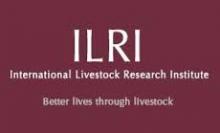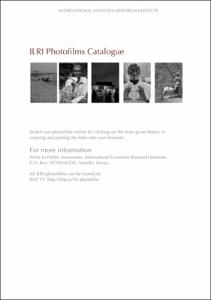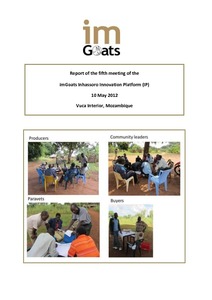Location
Vision, mission and strategy
ILRI's strategy 2013-2022 was approved in December 2012. It emerged from a wide processof consultation and engagement.
ILRI envisions... a world where all people have access to enough food and livelihood options to fulfil their potential.
ILRI’s mission is... to improve food and nutritional security and to reduce poverty in developing countries through research for efficient, safe and sustainable use of livestock—ensuring better lives through livestock.
ILRI’s three strategic objectives are:
- with partners, to develop, test, adapt and promote science-based practices that—being sustainable and scalable—achieve better lives through livestock.
- with partners,to provide compelling scientific evidence in ways that persuade decision-makers—from farms to boardrooms and parliaments—that smarter policies and bigger livestock investments can deliver significant socio-economic, health and environmental dividends to both poor nations and households.
- with partners,to increase capacity among ILRI’s key stakeholders to make better use of livestock science and investments for better lives through livestock.
This is ILRI’s second ten-year strategy. It incorporates a number of changes, many based on learning from the previous strategy (2000–2010, initially produced in 2000 and modified in 2002), an interim strategy (2011–2012) and an assessment of the external and internal environments in which the institute operates.
Members:
Resources
Displaying 536 - 540 of 1152Report of the fifth meeting of the imGoats Inhassoro innovation platform, Vuca Interior, Mozambique, 10 May 2012
Rainwater management in the Nile Basin—Reflections on a stakeholder workshop in Bahir Dar
In October 2011, project partners and team members in the Nile Basin Development Challenge (http://www.nilebdc.org) met in Bahir Dar, Ethiopia to reflect on project progress and directions. Here, Fantahun Mengistu, Director of the Amhara Regional Agricultural Research Institute (ARARI), shares some lessons and take home messages from the meeting.
Options for Support to Grassland Restoration in the context of Climate Change Mitigation
This report reviews the options for support to grassland restoration in the context of demand growth for livestock products and climate change mitigation. Key messages are: Grasslands provide crucial economic, social and environmental outputs Gasslands cover a total of 52.5 million km2 , or about 40% of the world’s ice-free terrestrial surface area. Extensive grasslands contribute about 7% of global beef production, 12% of sheep and goat meat production and 5% of global milk supply.





